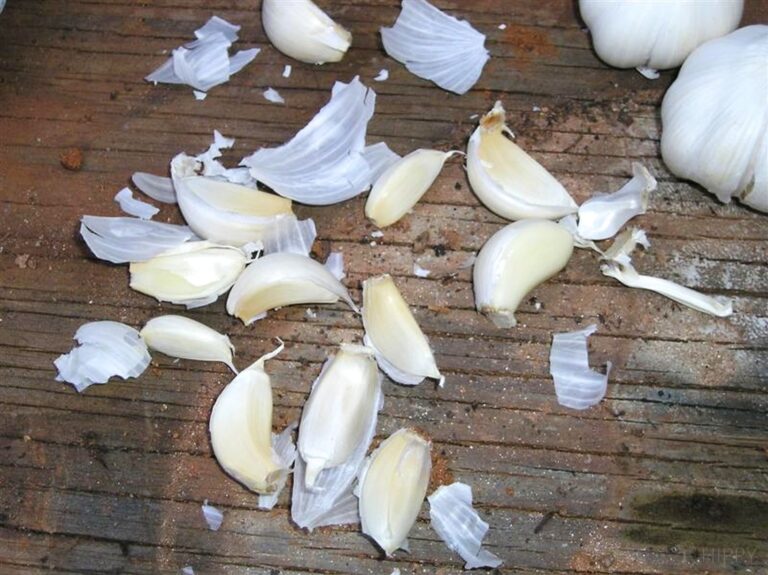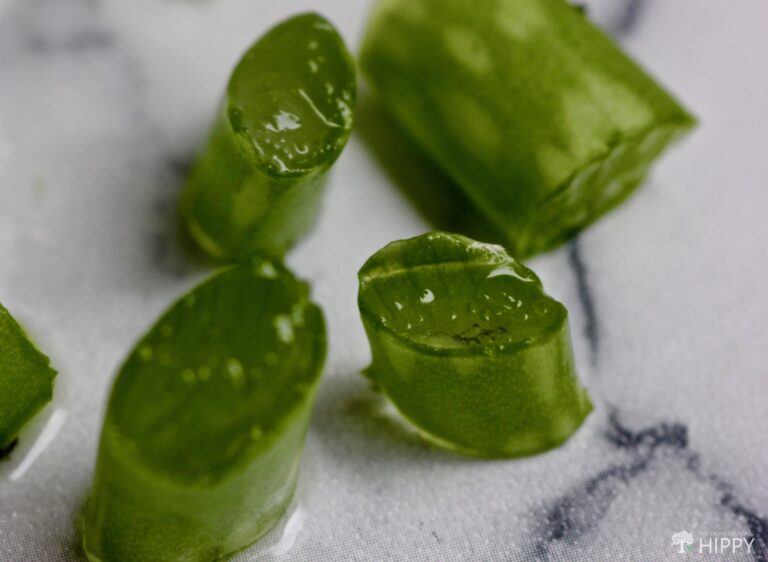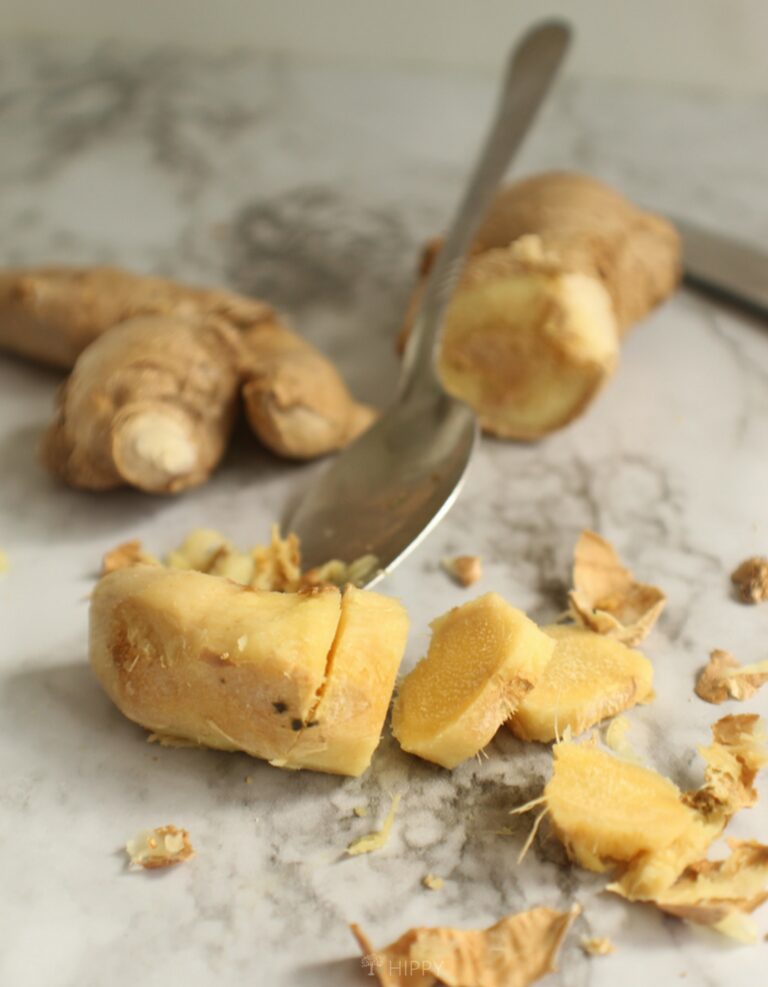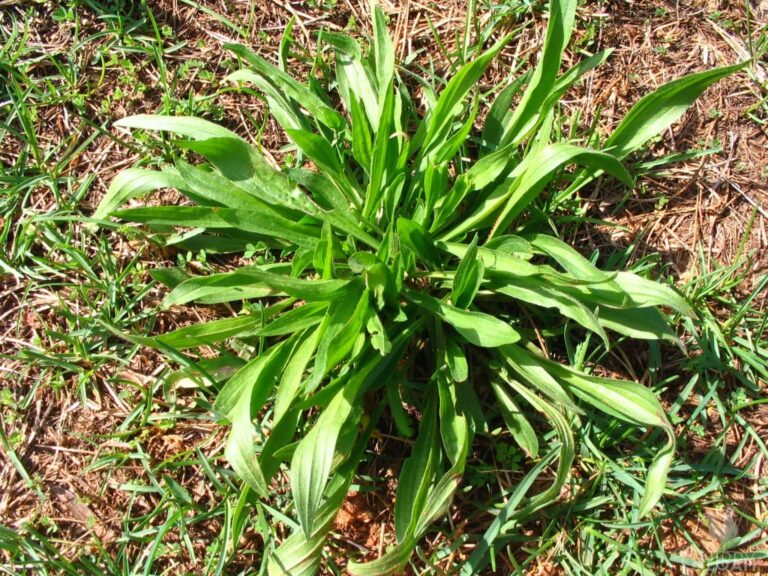Ulcers are irritating sores. Many people associate ulcers with the digestive tract, which is fair because the majority of ulcers occur here. However, ulcers can appear all over the body. They can even be external and appear on the skin.
Gastric ulcers, the most common type, are the type that appear in the stomach. They are quite common in the general population, with somewhere between 2 and 6 percent of the American population struggling with gastric ulcers.
In terms of stomach ulcers, there are a number of things that can cause them. Bacterial infections are one of the leading causes, particularly infections that are caused by the Helicobacter pylori strain.
Stress, smoking, alcohol, and taking certain substances can all contribute to these irritating and painful conditions. There are a number of ways that you can treat ulcers, but the majority of popular treatments involve using pharmaceutical medication. These medications – much like other pharmaceuticals – are known for causing unpleasant side effects, some of which are just as irritating as the ulcers themselves.
This is just one of the reasons that people are leaning towards natural medicines. Not only are they better for you, but they are more sustainable and better for the environment. In this article, we’re going to outline some of the best natural remedies for treating ulcers.
1. Cabbage Juice
Cabbage, and the juice from pulverized cabbage, is one of the most popular and effective ulcer remedies. Before antibiotics were popular, doctors prescribed it to people who had stomach or intestinal ulcers. Naturopaths are still fond of this particular remedy because not only does it help ulcers, but it provides a number of nutritional benefits.
One of the reasons that cabbage juice is so effective is because it contains a lot of vitamin C. Vitamin C is known to help prevent and manage the symptoms of H. pylori and the related ulcers.
Animal studies have proven that cabbage juice can actually help treat various types of digestive ulcers, not just the ones that affect the stomach.
You can find cabbages at any grocery store and make your own juice from them. Of course, getting organic cabbage from the health food store will provide you with more nutritional benefit. Some places also sell premade cabbage juice, but it’s not always easy to find.
If you want to help manage your ulcer, you should drink it at least once a day. Doing this proved to be more effective than some of the traditional treatments for ulcers used several decades ago, and still proves to be one of the most effective methods that doesn’t cause side effects.
2. Licorice Root
Licorice root is one of the best medicinal herbs, and it can be used for a number of things. It’s very popular in Asia and parts of the Mediterranean, but in America it’s mostly been popular as a candy. Things are changing now, and people are recognizing the importance of licorice root.
Licorice root is known for being great for digestion. It can help to enhance nutrient absorption and reduce gas and bloating. It can also be useful for helping to fight ulcers and manage the symptoms of ulcers.
It does this by producing mucus in the stomach. This, in turn, helps to prevent stomach acid from touching the ulcer which causes discomfort and pain.
Licorice root can be purchased whole and then chewed. This is one of the easiest ways to get the benefits of the plant without having to actually swallow anything, which can actually aggravate the ulcer. You can also get supplements and tinctures from health food stores.
3. Honey
Honey is more than just a sweet treat that we loved to steal spoonfuls of when we were kids. It possesses a number of medical qualities which can help people do anything from fighting bacteria to improving respiratory health.
Honey has also been shown to be very useful for helping to speed up the healing of open wounds. Despite being internal, ulcers are also a form of open wound, and thus honey can be useful for helping to treat them
Furthermore, honey is known to be great at fighting bacteria. That means that it can fight the H. Pylori bacteria which is the leading cause of developing ulcers.
Honey can be found at any grocery store. However, the majority of honey that is sold has been thoroughly processed so it’s not actually nutritional anymore. The best thing to do is get local, raw, unprocessed honey .
You can also get manuka honey which is made from the pollen of a special tree in New Zealand. This can be found at health food stores, and some grocery stores are beginning to stock.
4. Garlic
Garlic might sound like the last thing that you’d want to consume if you have an ulcer. However, studies have shown that its potent antimicrobial effects are actually useful for helping people recover from ulcers.
The best way to go about using garlic, however, is to prevent ulcers from coming in the first place. Garlic has been studied and proven to help inhibit the spread of H. Pylori, and can thus be useful for helping prevent the emergence of ulcers.

Eating two cloves of raw garlic for a few days can be great for helping to reduce the bacterial growth and activity in the stomach for people who have ulcers. It’s a good idea to eat them with some ginger, however, because raw garlic can be extremely hard on the stomach even when you don’t have ulcers.
Organic garlic can be found at health food stores and local farms. Regular garlic can be found at grocery stores.
5. Turmeric
Turmeric has appeared on almost every list that we’ve written in regards to natural remedies, and for good reason. Turmeric is one of the most powerful and well-rounded natural remedies for all sorts of illnesses ranging from mental health problems to chronic inflammation.
Curcumin, the active compound found in turmeric, is responsible for these benefits. It has been shown, among other things, to be useful for fighting ulcers, though the current studies mostly just cover animals.
Regardless, it has been shown to help prevent damage caused by H. Pylori. It can also help the stomach produce mucus which will protect the ulcer from irritation.
Turmeric can be found at almost any grocery store. Raw turmeric roots and organic turmeric can be found at natural health food stores, and these will provide more benefit.
6. Mastic
Mastic is a certain type of resin that’s acquired from the mastic tree. It’s also known as Arabic gum, and can be found in some natural health food stores or in pharmacies.
The resin can be chewed, and it becomes something like a gum that tastes a bit like pine needles.
This gum has a number of medicinal properties, and has been used in various folk medicine regimes for helping people manage problems with digestion like ulcers and Crohn’s disease.
Animal studies have also been done on this particular substance that have revealed it to be a highly effective remedy for fighting ulcers. It actually helped to completely heal ulcers in about 70% of subjects.
7. Chili Peppers
There is a common misconception that chili peppers can cause ulcers. Not only is this not true, but the opposite is actually true. Chili peppers can be useful for helping to prevent ulcers.
You see, capsaicin – the active ingredient in chili peppers – doesn’t actually burn the skin. It triggers a chemical reaction that sends a signal to the brain that suggests that you are experiencing pain. However, it doesn’t actually burn the skin.
What it does do, however, is helping the body produce mucus and open up the airways in the respiratory system. Producing more mucus can help the stomach defend itself against bacteria and can also protect against discomfort when you already have an ulcer.
Furthermore, chili peppers actually function as an antibacterial and can help to prevent the emergence of H. Pylori.
Some people prefer to use capsaicin or cayenne supplements instead of actually eating chili peppers. These can be found in pharmacies or in natural supplement food stores. However, if you want to get the raw chili peppers, you can get them from grocery stores and health food stores.
8. Aloe Vera
Aloe vera is a widely used medicinal plant that can be used for treating anything from burns to infections. Many people associate aloe vera with topical use because it’s so easily applied to the skin and the majority of the products sold are creams and lotions.

However, it’s effective at fighting bacteria both internally and externally. That means that it’s also useful for treating ulcers and the H. Pylori bacteria that can cause them. Its ulcer-fighting effects are shown to be just as potent as some of the most commonly prescribed ulcer fighting meds.
Eating aloe vera is considered safe at recommended doses. You can find the stuff in health food stores and in pharmacies.
9. Probiotics
Probiotics are widely known for their ability to enhance the health of the bacteria in our guts. Recent research has shown that they can also be useful for helping people boost their immune system.
Probiotics are living organisms that help to replenish the intestinal flora in our body. They can also be useful for helping to fight off ulcers. There is some debate as to how exactly probiotics do this.
They cause the body to produce more mucus, which can help to protect the stomach from any invaders and irritants. It can also help to bolster the amount of healthy bacteria in the gut which can compete with the infectious H. Pylori.
Furthermore, probiotics have been shown to enhance the efficacy of regular ulcer medication. They can also help to fight the diarrhea and side effects associated with other traditional antibiotics by helping the body retain a healthy balance of its own bacteria.
There are many probiotic supplements. The best ones can be found at health food stores or pharmacies.
10. Soybeans
Foods that are made from soybeans, like tofu and tempeh, are quite easy on the stomach.
Not only that, but soybeans are rich in flavonoids. Flavonoids, or bioflavonoids, are nutritional compounds that carry a number of important medicinal benefits.. Research has suggested that flavonoids make a great addition to a regime in which one is trying to treat ulcers.
Soybeans and the related products can be found at grocery stores, health food stores, and online. Natural food stores always provide much more nutritional products.
11. Legumes and Beans
In addition to soybeans, there are other types of beans and legumes that are loaded with flavonoids. Any type of lentils and beans can be a rich source of flavonoids that can be useful for helping manage ulcers.
In addition to being a useful part of treatment, making a diet plan based on ulcer-friendly foods is a great way to help keep the symptoms at a minimum. You can find beans and legumes at any grocery store or health food store.
You can also make the legumes and beans more nutritious by sprouting them. By soaking them in water for a day, then straining the water and changing it twice a day for two more days, the lentils or legumes will begin to sprout. This will greatly enhance their nutritional benefits.
12. Cruciferous Vegetables
Cruciferous vegetables, like broccoli and cauliflower, are another great food source that can help people manage ulcers. They are rich in flavonoids and nutritional compounds that are immensely useful in helping the body maintain its defense against bacteria.
Cruciferous vegetables are best purchased organic from a health food store. However, grocery stores can provide non-organic version in a pinch.
13. Berries
Berries are one of nature’s richest sources of bioflavonoids. Berries like strawberries, blueberries, and blackberries are incredibly dense sources of flavonoids and other antioxidants and nutrients that can help your body develop its defenses against ulcers.
Berries can be picked in the proper season. Blackberries grow near the end of summer in many places in North America, and strawberries can be harvested near the beginning of fall. They can also be purchased in grocery stores. You’ll get the healthiest berries in their respective harvesting series.
14. Flavonoids
The last few entries have had us discussing flavonoids that you can acquire from foods. However, many companies have recognized the importance of flavonoids and began selling them in supplement form.
You can get flavonoid supplements extracted from various fruits at your local health food store or your pharmacy.

15. Cranberries
Cranberries are widely known for their ability to help fight infections, though they are most widely prescribed for helping to fight off urinary tract infections. However, cranberries are not selective – they can also be used for treating infections of the stomach such as H. Pylori.
Cranberries can be found in a number of forms. Of course, you can just eat cranberries. However, many people don’t like the tart taste.
Unfortunately for these people, this is usually the best way to eat them. The flavonoids and antibacterial nutrients are most intact when you’re eating whole cranberries. Most cranberry juices are loaded with sugar, which can irritate the stomach and cause inflammation.
Cranberry supplements are also available. These products, which can be found at health food stores and pharmacies, provide all the nutrients of the cranberry without any of the flavor.
16. Whole Grains
Whole grains are one of the best food sources for helping you manage your ulcer. Not only are they a great source of vitamins and minerals that are important for helping to maintain your immunity and fight off infections, but they’re a great source of polyphenols.
Polyphenols are a type of antioxidant nutrient that are known to help protect the body from illness and fight off bacterial infections. Whole grains can be found all over the place, but the best place to find them is in the natural health food store. They can be found in bulk or in packages.
17. Dark Chocolate
Dark chocolate is another food that’s useful for helping to manage ulcers. Many people hesitate when they consider dark chocolate and its medicinal benefits. However, chocolate contains a number of important nutrients that are vital for good health.
Not only that, but dark chocolate is a rich source of polyphenol antioxidants. As we’ve mentioned, theses are great for helping to manage the symptoms of ulcers.
The best kind of chocolate will be found in natural health food stores. Many forms of chocolate are filled with milk, sugar, and excess fat. These things aren’t good for you. However, organic dark chocolate with at least 70% cacao is good for the body.
18. Ginger
Ginger is one of the most versatile food remedies for many different conditions, particularly those that affect the digestive tract. Ginger can be used for helping to treat nausea, bloating, gas, gastritis, constipation, and yes – ulcers are no exception.
Ginger has been shown to be particularly useful for helping people manage ulcers that are caused by NSAIDs, or non-steroidal anti inflammatory meds. Ginger is also known to have an anaesthetizing effect on the digestive tract and can fight the discomfort associated with these ulcers.

Most of the studies have been done on animals. However, anyone who has suffered from an ulcer and has eaten ginger will attest to its usefulness in fighting ulcers. Organic ginger can be found at natural health food stores.
19. Bright Fruits
The color of a fruit can tell you a lot about its nutritional makeup. Bright, colorful fruits tend to contain a high amount of flavonoids. These are actually the nutritional pigments that contribute to the color of these tasty snacks.
As we have discussed, flavonoids are useful for helping the stomach protect itself against ulcers. They can also inhibit the growth of the bacteria that cause ulcers.
Some of the best foods for helping to provide the body with flavonoids include apples, cherries, lemons, oranges, and other citrus fruits. These can be found year round at the grocery store, but they will provide more benefits if they are purchased during their harvesting season.
20. Plantains
Plantains are very similar to bananas. However, bananas are known to be genetically modified and are generally less nutritional than their plantain cousins.
Recent research has also suggested that unripe plantains are actually useful for helping to manage ulcers. This is because they contain a particular flavonoid known as leucocyanidin.

If you don’t live in South America, plantains can be a bit difficult to find. Many natural food stores stock them, however, and if you have a good grocery store they may occasionally stock them.
21. Chamomile
Many people are aware of chamomile, but most people are only aware of how it can be useful for helping people fall asleep. Chamomile – just like any other plant – doesn’t only provide us with a single medicinal benefit, though.

Recent research has suggested that chamomile is capable of fighting ulcers. It can inhibit them from growing and can also speed up the time that it takes for them to heal. Unfortunately, most of these studies have just been done on animals – but no significant amount of people have reported adverse effects from taking chamomile with an ulcer.
Chamomile can be found in tea bags at the grocery store. Loose leaf chamomile can be found in some health food stores. Chamomile tinctures are also available at some health food stores.
22. Eat Frequently
One of the best ways to avoid having gastric ulcer flare ups is to make sure that there’s at least a little bit of food present in your stomach all the time. The easiest way to achieve this is to eat smaller meals throughout the day, or to eat small snacks in between your meals.
Make sure not to overeat, though. If you eat too much, your stomach will produce excessive gastric acid which can contribute to the unpleasant sensation of your ulcer.
23. Eat More Fiber
One of the best things to do if you have an ulcer is to eat tons of high-fibre foods. This means lots of unrefined plant foods, lots of whole grains, and leafy greens.
Most people these days eat a diet that contains too many processed grains, like white bread and crackers. This actually prevents the body from absorbing fibre and can cause us to become more sensitive to our own gastric acid. This can worsen or cause ulcers.
24. Avoid Alcohol
There is no doubt that alcohol can contribute to the development of ulcers. The harder the alcohol, the more risk you have of developing an ulcer. For example, someone who drinks several shots of absinthe on a daily basis (which is about 130 proof) will be much more likely to develop an ulcer than someone drinking a couple beers.
If you already have an ulcer, then you are likely going to be quite uncomfortable if you drink a lot of alcohol. This will aggravate the problem and likely make it last longer. Avoid alcohol as much as possible if you’ve got an ulcer.
In Conclusion
Ulcers are a very irritating problem. When they are left untreated, they can become debilitating and can affect a person’s quality of life. For this reason, many people seek pharmaceutical remedies for their ulcers.
Fortunately, there are a lot of natural remedies that can help someone overcome their ulcers. Hopefully this list has helped you get some ideas of how you can manage your symptoms without the dangerous side effects of pharmaceuticals.
Nigel enjoys sharing wisdom regarding nutrition and health when he’s not playing music, loving nature, and being at one with the world.
